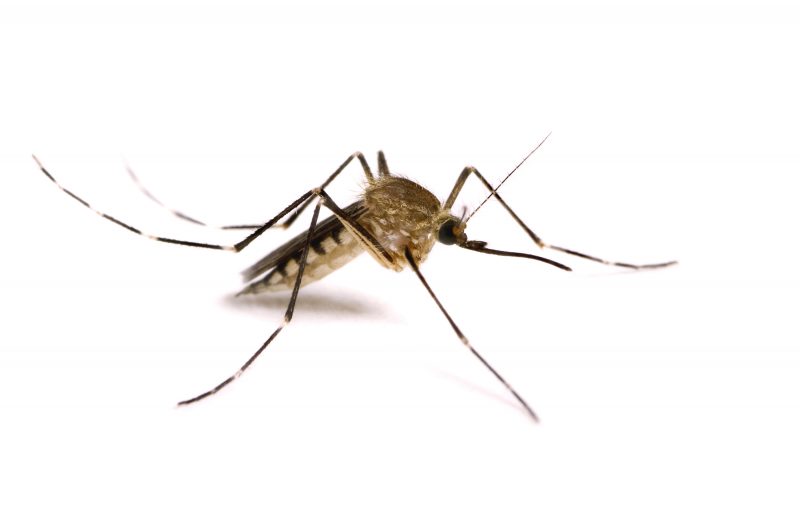International Trials to Reduce Dengue
The results of a randomised controlled trial of the World Mosquito Program (WMP) published in the highly reputed world health journal, the New England Journal of Medicine (NEJM), showed a 77 percent reduction in dengue cases in the area of Yogyakarta City.
The number of dengue patients who were hospitalised was also reduced by 86 percent.
The trial, called, Applying Wolbachia to Eliminate Dengue or the AWED efficacy test, was conducted by the World Mosquito Program in Jogja. The research project is a collaboration between Gadjah Mada University and Monash University and is funded by the Tahija Foundation.
This study aims to determine whether the administration of Wolbachia bacteria to the local population of Aedes aegypti mosquitoes can reduce virologically confirmed dengue cases in residents aged 3-45 years living in Yogyakarta.
More than three years after the spread of Wolbachia-infected mosquitoes in 2017, the percentage of mosquitoes with Wolbachia remains high in the local mosquito population. The Wolbachia method has been implemented throughout Yogyakarta and has begun to be implemented in the surrounding districts, namely Sleman and Bantul, in order to protect 2.5 million people from dengue disease.
The results of the AWED efficacy test are consistent with the results of the previous Wolbachia study, which showed a long-term reduction in the incidence of dengue after Wolbachia was present in the local mosquito population. Wolbachia has equivalent efficacy against four existing dengue virus variants.
The Wolbachia method uses Wolbachia bacteria to infect the Aedes aegypti mosquito. Once infected with the bacteria, the mosquitoes aren’t harmed, but no longer carry viruses like Dengue. Wolbachia is present in many insects and isn’t harmful to humans.
Dengue haemorrhagic fever (DHF) is a mosquito-borne disease and is rapidly spreading across the world. More than 50 million cases occur globally every year. Indonesia is one of the dengue-endemic countries, with nearly 8 million cases of dengue occurring every year.
The study showed that the Wolbachia method was also effective in preventing the spread of Zika, chikungunya, yellow fever, and other diseases transmitted by the Aedes aegypti mosquito.
The Yogyakarta City Health Office noted that more than 4,500 dengue patients were hospitalised in the five years before the AWED study was conducted. This figure does not reflect the true burden of dengue for the health system and society.
Economic studies estimate that there was an average of 14,000 cases of dengue, including 2,000 hospitalised in Yogyakarta each year prior to the implementation of Wolbachia.
“This is a great success for the people of Yogyakarta. On the other hand, Indonesia has more than seven million cases of dengue every year. This success has allowed us to extend the benefits of Wolbachia to other cities in Indonesia. We think this technology is an opportunity for the Indonesian people to be free from the threat of DHF,” said WMP Jogja Principal Researcher, Prof. Adi Utarini from Gadjah Mada University.
Co-Principal Investigator of the research, Prof. Cameron Simmons from Monash University, said the results of this study demonstrate the significant impact of the Wolbachia method in reducing dengue cases in urban populations.
“This is an exciting breakthrough from Wolbachia – a new technology that is safe, robust, and effective for dengue control, which is needed by the global community,” he said.
Meanwhile, Director of the World Mosquito Program, Scott O’Neill, said this success was a long-awaited result. The Wolbachia method has proven to be safe, sustainable, and reduces dengue cases.
“This gives us great confidence to be able to extend the benefits of Wolbachia to the rest of the world across a large urban population,” he said.
WMP Director of Impact Assessment, Katie Anders, stated that this is the first trial of intervention against dengue mosquitoes to demonstrate the impact of disease cases.
“The results are consistent with our findings from previous non-randomised studies in Yogyakarta and North Queensland, as well as predictions from epidemiological models of a substantial reduction in the burden of dengue disease after the spread of Wolbachia,” she added.
The AWED test independent statistician, Prof. Nicholas Jewell, Professor of Biostatistics and Epidemiology at the London School of Hygiene and Tropical Medicine, said the results were interesting.
“What is very interesting is that the trial design used here provides a template that other health intervention candidates can follow,” he said.
Wolbachia’s potential in reducing dengue cases worldwide has been recognised by the World Health Organisation’s (WHO) Vector Control Advisory Group, which stated, “Wolbachia demonstrates the public health value of dengue” in a report from their 14th Meeting in December 2020.




